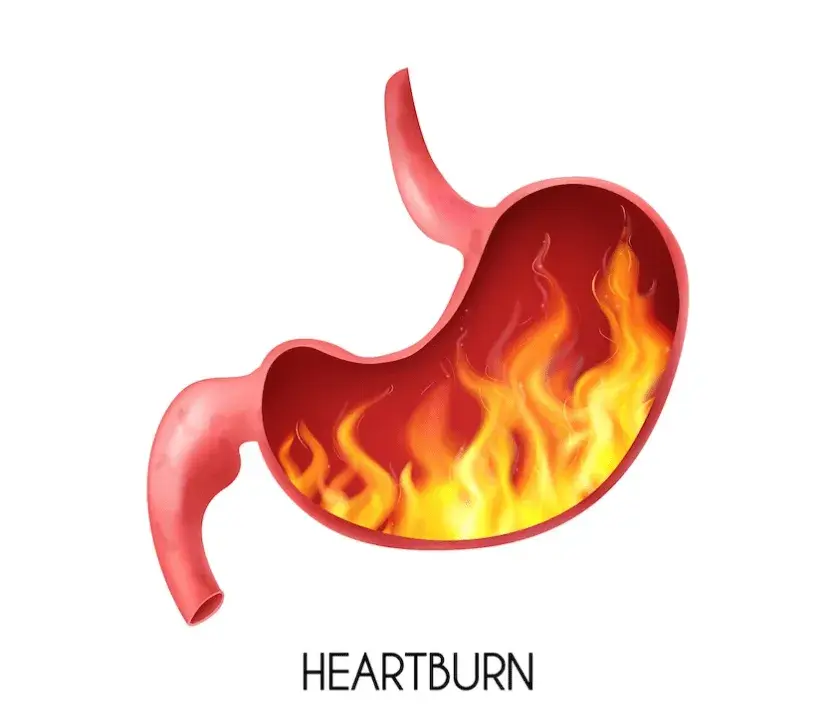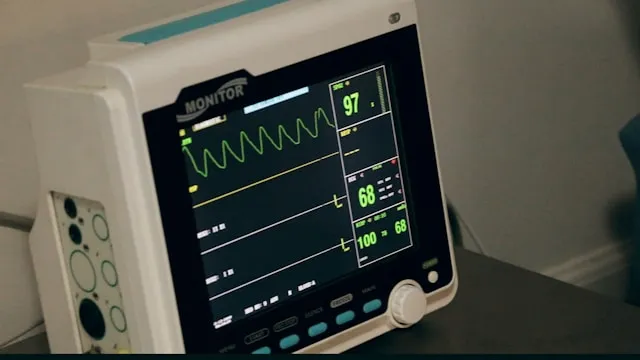A burning sensation in the throat and chest can cause heartburn. It could be caused by what you eat, especially salty, spicy, fatty, or acidic foods. If you experience heartburn everyday, you may have a more serious underlying condition, such as Gastroesophageal Reflux Disease (GERD). There are numerous probable causes for this long-term illness. I recommend seeing a doctor for a proper diagnosis and treatment plan, which might include lifestyle changes, medication, and in severe cases, surgery. Heartburn, whatever the reason, is uncomfortable and inconvenient. This article discusses about what causes heartburn everyday and 10 tips to fix it!
What is Heartburn?

Heartburn is a burning sensation in the chest that could travel up the neck and throat. This could signify various illnesses, such as acid reflux, gastroesophageal reflux disease (GERD), and pregnancy. When you have heartburn, you may notice a bitter or sour sensation inside the back of the throat. Heartburn symptoms might last between a few minutes to an hour. It is common for people to feel uncomfortable after eating something or if they lie down immediately.
How common is Heartburn?
Heartburn is pretty common sometimes. But, if you experience severe and frequent heartburn, it could indicate GERD, a permanent acid reflux problem; if you have any concerns consult your doctor.
What causes heartburn everyday?
Heartburn experienced every day can be caused by various factors, including:
- Gastroesophageal Reflux Disease (GERD) - This is a chronic condition where stomach acid or partially digested food flows back into the esophagus, causing irritation and heartburn.
- Hiatal Hernia - This condition is where part of the stomach bulges into the chest through an opening in the diaphragm, leading to acid reflux and heartburn.
- Obesity - Excess weight puts pressure on the abdomen and can cause acid to reflux into the esophagus. Know more about causes of Obesity.
- Pregnancy - The increased pressure on the abdomen can cause heartburn during pregnancy.
- Certain Foods and Drinks - Foods high in acid, spicy foods, fatty foods, caffeine, alcohol, and carbonated drinks can trigger heartburn.
- Smoking - Smoking weakens the lower esophageal sphincter and can lead to heartburn.
- Certain Medications - Some medications, such as aspirin, ibuprofen, and muscle relaxers, can weaken the lower esophageal sphincter and cause heartburn.
It's important to see a doctor to determine your heartburn's specific cause and receive appropriate treatment. Also read: 11 Foods that cause acid reflux
The Few other factors that may cause Heartburn every:
- Overeating or consuming too fast.
- After consuming food and lying
- Caffeine, carbonated drinks, alcohol, peppermint, citrus, tomato-based goods, chocolate, and fatty or spicy foods are all examples of foods to avoid.
- overweight
- Smoking.
- Anxiety and stress.
Tips for Managing Heartburn Every Day -
You should always consult a gastroenterologist if you have heartburn issues daily. However, if heartburn is occurring due to abnormal dietary habits and some common conditions, Here are 10 tips to help relieve and prevent heartburn:
1. Consume small portions of food and chew slowly.
Bigger meals cause an increase in acidity. Trying to stuff your stomach raises abdominal pressure and acid reflux. Trying to stuff your stomach raises abdominal pressure and acid reflux. Among the tried-and-true heartburn cures are to eat lesser meals. Eating less allows you to lose weight, which helps to alleviate discomfort even more. If being overweight isn't an issue and your servings appear adequate, try dividing the meals into 5 or 6 small meals. Instead of sandwiches, fruits, and salad for lunch, eat only the sandwich and salad and save the fruit for later.
2. Reduce your consumption of fizzy beverages.
Doctors sometimes advise people with GERD to minimize their consumption of fizzy beverages. Since studies have found that drinking carbonated or fizzy beverages daily, such as carbonated drinks, soda, and fizz drinks, may increase the risk of reflux. One study discovered that soft drinks aggravated acid reflux symptoms such as heartburn, bloating, and puking. The carbon dioxide gas in fizzy drinks encourages people to burp more frequently, which can raise the amount of acid leaking into the esophagus.
3. Maintain a low-carb diet.
An increasing body of research indicates that low-carb diets can help with acid reflux symptoms. Based on some studies, undigested carbs may induce bacterial growth and intense pressure within the stomach, leading to gastric reflux. Too much-undigested carbs in your digestive tract can result in gas, bloating, and burping. While some studies indicate that low-carb diets may help with GERD symptoms, additional research is needed.
4. Maintain a healthy weight.
However, if you have too much belly fat, this pressure on your abdomen might rise to the point where the end of the esophagus sphincter is pushed forward, away from the diaphragm's support. Moreover, evidence suggests that having too much belly fat may increase your risk of gastric reflux and GERD. As a result, several studies suggest that decreasing at least 10% of the body weight could considerably reduce GERD symptoms in persons with the condition. Developing and staying at a healthy weight can help prevent acid reflux over time.
5. Eat your dinner earlier.
You should avoid eating three hours before going to bed. Since laying horizontally after a meal renders digestion less hard, it may aggravate GERD symptoms. Compared to eating earlier in the evening, eating late at night raised acid added when lying down by 5%. Another study involving 817 patients with type 2 diabetes discovered found having dinner late at night was linked to an increased incidence of acid reflux.
6. Limit your alcohol consumption.
Alcohol consumption may aggravate heartburn and nausea. Some research has associated increasing alcohol use with increased acid reflux symptoms. Alcohol exacerbates symptoms by raising acid in the stomach, weakening the esophagus sphincter, and reducing the esophageal capacity to clear acid. Although more study is needed, several older studies demonstrate that consuming wine or beer enhances reflux symptoms, particularly when drinking plain water.
7. Don't rely on milk to soothe your tummy.
Drinking milk leads your stomach to produce more acid. Many factors, like proteins in milk and other meals, boost acid production. You'll be disappointed if you expect milk fat to calm you. The stomach's liquid environment prevents fat from actually coating it.
8. Don't consume too much coffee.
Caffeine is also mentioned as a possible factor in some studies. Caffeine, like coffee, relaxes the esophagus sphincter, which can lead to heartburn. However, when researchers used a small camera to look for symptoms of acid reflux, they discovered that coffee drinking was associated with more acid damage in the esophagus. As a result, whether coffee consumption affects acid reflux depends on the individual. If coffee causes heartburn, avoiding it or reducing your consumption is ideal.
9. Don't consume too much citrus juice.
Many citrus juices, especially orange juice, and grapefruit, are popular heartburn causes. Some elements were strongly acidic and contained chemicals such as ascorbic acid, which might cause stomachs if consumed in excessive quantities. Though citrus juice is unlikely to cause heartburn, it may briefly aggravate heartburn.
10. Do not exercise after eating.
A strenuous workout immediately following a big meal may cause stomach acid to enter the esophagus. On the other hand, a light walk after dinner has no such consequences and promotes digestion.
Also Read: Burning sensation in the stomach: Causes And Treatments
Conclusion
Heartburn can cause uncomfortable feelings that several different circumstances can trigger. Although there are numerous drugs and therapy options for heartburn, making a few easy modifications to your food and lifestyle could also be beneficial. Try the suggestions above to see what works best to reduce indigestion and heartburn.
Also Read: How to Relieve Indigestion: 11 Natural Ways to Get Rid of It.

Reviewed by







